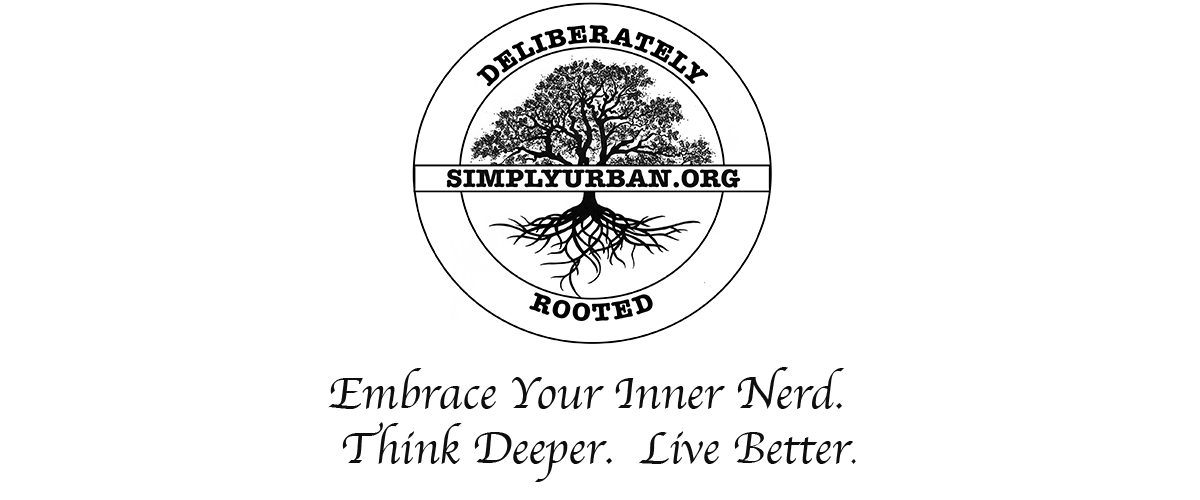One inhales the bitterly divisive vitriol of modern political and social conflict with every breath in many Western Societies. Advances in technology make access to information easier than ever. Most people feel more comfortable swearing on Science than on the Bible. Yet, it seems we can’t even agree on basic facts. It seems we’re living in a strange new post truth era. Every bubble has its handful of news outlets, forums, or cliques always spinning facts to feed confirmation bias and reinforce a particular world view.
Disregard for Truth and Facts Define the Post Truth Era
Controversy over mainstream media’s horrifically biased coverage of the Covington Catholic High School Students at the March for Life exemplifies this divisiveness.
But, the leftist mainstream media aren’t alone in post truth spins aimed at reinforcing their audience’s confirmation bias. Trump questioning the location of Barack Obama’s birth provides a case in point. Obama’s birth was about as verifiable as a fact gets – with the primary document, his birth certificate, published online. But the publication of a fact didn’t stop many from believing the myth that he was born overseas.
Moreover, fundamental distortions of truth and the resulting animosity go beyond clingy click-bait journalism and social media anxiety. They often spill over into violence in the real world. James Thomas Hodgkinson, a former Bernie Sander’s campaigner, posted a petition from Change.org demanding the removal of President Trump for “treason” on social media before shooting several Republican Lawmakers at their baseball practice.
Post Truth Ethos Damages our Sense-Making Ability
It’s becoming harder and harder to make sense of what’s happening in the world around us. As a centrist, the sacrifice of objective truth and facts on the altar of political expediency shocks and saddens me. But, it probably shouldn’t. A careful study of history shows this is normal because humans are ruled by irrational emotions and motivated by conflict. The past decades (say from 1950 to 2000) were the exception to the rule, not the norm. Civilization is fragile and based on the shifting sands of human psychology. Freud makes this case in his seminal Civilization and Its Discontents. Emotions tend to dominate our thinking and are more confused than ever, as

But, for now, I’ll present informal arguments and good evidence of what I believe is driving us into the post truth era. So, why do truth and facts seem to matter less and less these days?
Changing Media Economics
The internet’s changed fundamental dynamics in the way we make sense of the world around us. Sources like Facebook and Netflix dominate many American’s information intake while newspapers and traditional news institutions struggle to stay in business and relevant. A longtime journalist, Jeffrey Dvorkin, sheds light on what’s happening in newsrooms:
Media managers are wondering what went wrong. Reporters and editors are asking why journalism doesn’t pay any more. […] Journalism is […] being Uber-ized. Increasingly, content isn’t created by journalists once employed by legacy media. It comes from freelancers, citizen journalists, bloggers and vloggers. Freelancers are being hired while experienced, older journalists are laid off. In the rush to return to the once-rich profit margins of the early 2000s, media organizations are being urged by their shareholders to dispense with expensive ventures like international reporting. Newspapers have closed or been downsized, broadcasters have cut their more expensive (and more labor-intensive) content. News consultants like Frank N. Magid Associates are hired to tell their news clients that weather, traffic and crime, or WTC [What’s The Crisis], are what most audiences prefer.
Layoffs Drive Journalists’ Desperation
Buzzfeed recently announced layoffs, as did CNN, Thomson Reuters, etc. Journalists are losing their jobs and wondering how to pay their rent and support their families. I’ve also worked at companies in the midst of layoffs, and let me tell you, its no fun. Working late nights and weekends trying to stand out in the hopes the dreaded pink slip will pass to the next cubicle, meanwhile looking for another job, trying to stay focused, and combating the anxiety of not being able to pay your bills takes a toll. Stress and pressure drive many journalists to do things once considered unthinkable.
So, I get that stress and anxiety. Hard working people who lose their job saddens me. Prolonged stress and pressure could lead many to fudge the truth a bit in the pursuit of the ever elusive, and much sought after click. More sensational and astonishing headlines lead to more clicks, enhanced post truth metrics, and more job security.
Luckily, I’m immune to the lure of click-bait. That’s one of the many advantages of being a hobby blogger more interested in ideas and truth than clicks or earning a living from my writing. But, I, and the handful of other part-timers like me, can’t fill the void created from the downward spiral of credible journalism.
Internet and the Demise of Traditional Journalism
Amanda Meade, writing in the Guardian, sums up the changing economics of journalism:
[T]he internet and its applications have brought that business undone. […] technology has torn apart the two businesses – advertising and news – that used to be bound together by the physical artefact of the newspaper. Once, those who wanted to find a house, a job or a car had to buy a newspaper to read the classifieds. Now, it is cheaper and more efficient to advertise and search online, without needing to pay a single journalist. […] It is now estimated that of every dollar spent on advertising in the western world, 90 cents ends up in the pockets of Google and Facebook.Today, just about anyone with an internet connection and a social media account has the capacity to publish news and views to the world. This is new in human history.

But, I disagree. I’m optimistic that the democratization and free sharing of information will ultimately prove superior to the centralization of information by a handful of large corporations. I think every intellectual will agree that a blog like SlateStarCodex.Com is better than the New York Times at its best. Although, I think we’re in a difficult transition period.
But, regardless of your point of view, there’s no going back. One aspect of truth is to accept the reality of things, not to stick our heads into the sand and pretend reality doesn’t exist.
The Internet’s here to stay.
A Collapse of Journalist Ethics
Longtime reporter, Michael Goodwin shares his impressions, from decades of experience, on the changing ethics of newsrooms:
The [New York] Times’ previous reputation for having the highest standards was legitimate. Those standards were developed over decades to force reporters and editors to be fair and to gain public trust. The commitment to fairness made The New York Times the flagship of American journalism. But standards are like laws in the sense that they are designed to guide your behavior in good times and in bad. Consistent adherence to them was the source of the Times’ credibility. And eliminating them has made the paper less than ordinary. Its only standards now are double standards.
I say this with great sadness. I was blessed to grow up at the Times, getting a clerical job right out of college and working my way onto the reporting staff, where I worked for a decade. It was the formative experience of my career where I learned most of what I know about reporting and writing. Alas, it was a different newspaper then. Abe Rosenthal was the editor in those days, and long before we’d ever heard the phrase “zero tolerance,” that’s what Abe practiced toward conflicts of interest and reporters’ opinions. He set the rules and everybody knew it.
Here is a true story about how Abe Rosenthal resolved a conflict of interest. A young woman was hired by the Times from one of the Philadelphia newspapers. But soon after she arrived in New York, a story broke in Philly that she had had a romantic affair with a political figure she had covered, and that she had accepted a fur coat and other expensive gifts from him.
When he saw the story, Abe called the woman into his office and asked her if it were true. When she said yes, he told her to clean out her desk—that she was finished at the Times and would never work there again. As word spread through the newsroom, some reporters took the woman’s side and rushed in to tell Abe that firing her was too harsh. He listened for about 30 seconds, raised his hand for silence, and said (this is slightly bowdlerized): “I don’t care if you have a romantic affair with an elephant on your personal time, but then you can’t cover the circus for the paper.” Case closed. The conflict of interest policy was clear, absolute, and unforgettable. […]
He was well known for this attitude, which he summed up as “keeping the paper straight.” He even said he wanted his epitaph to read, “He kept the paper straight.” Like most people, I thought this was a joke. But after I related all this in a column last year, his widow contacted me and said it wasn’t a joke—that, in fact, Abe’s tombstone reads,
“He kept the paper straight.” She sent me a picture to prove it. […] Sadly, the Times’ high standards were buried with Abe Rosenthal…. Which brings us to the crucial questions. Can the American media be fixed? … The short answer to the first question is, “No, it can’t be fixed.”
Most Americans agree with Mr. Goodwin’s assessment. Recent polls have shown the vast majority of Americans don’t trust traditional media institutions. I lament many journalists lack of ethical standards.
Consumer’s Changing Desires Drive Fake News
But, click-bait journalism sensationalizing our national discussion at the expense of the truth is only half the story. After all, they’re just satisfying what the market demands. If social media mobs shouted down partisan Fake News the way they do to anyone willing to speak truths that challenge their world view this would be a different story.
Speaking truth to power has never been more important. But, I don’t mean shallow, clingy virtue signaling that pervades our society. Virtue signaling is just a desperate cry to belong from needy millennials ashamed they’re still living in their parent’s basement. Speaking truth to power is not saying what you think everyone else wants to hear. It means taking a risk. I mean truly speaking truth to power from courageous thinkers like Jordan Peterson and Ben Shapiro.
Journalists no longer fill a market demand for facts to make better decisions. Instead, the market now seems to demand a feeling, any emotion whatsoever, to fill to empty lives.
Post Truth Prioritization of Feelings Over Facts
Many have lost touch with basic truths. They live lives disconnected from reality always prioritize feelings over facts. The high profile suicide of twenty-something Tara Condell exemplifies this trend. Moreover, she’s not alone. Increases in suicide rates signal our collective discontent. In Pursuit of Happiness discusses this trend.
I don’t want to trivialize or demean Tara’s tragic death. Her suicide saddens me. But, her thinking demonstrates profound untruth and a disconnect with reality in its prioritization of emotions and feelings over reality. Let’s take a look at some excerpts from her suicide note. It begins:
I have written this note several times in my head for over a decade, and this one finally feels right. […] I have accepted hope is nothing more than delayed disappointment […] I often felt detached while in a room full of my favorite people; I also felt absolutely nothing during what should have been the happiest and darkest times in my life.
The first sentence justifies any action no matter how horrible based on vague feelings. She says hope is disappointment. But, hope is not disappointment. Hope and disappointment are fundamentally different and inherently contradictory ideas. It continues:
I realize I am undeserving of thinking this way because I truly have a great life on paper. [she explains how great her life is] these facets seem trivial to me. It’s the ultimate first world problem, I get it.
Yes, this flavor of narcissistic thinking is a first world problem. Although she acknowledges the facts of her life were much better than the vast majority of others she concludes these facts are not very important. The note ends with:
I’m really sorry mama.
Another untruth. If she cared about her mother, she wouldn’t have killed herself.
Emotional Reasoning Dominates Many People’s Thinking
This overly emotional post truth thinking convinced her to take her own life. Unfortunately, she’s not alone. It has become commonplace in Western Civilization. Post truth’s disregard of basic facts shines through the brightest in popular culture. One host of the popular television show The View, Whoopi Goldberg, explained that everyone should oppose nuclear power because it could explode like an atomic bomb. When a reporter pointed out that it is physically impossible, since the uranium enrichment in power plants is only 4%, and a weapon needs 80% or higher. Whoopi got angry. “This is not about facts,” she said. “It is about feelings.”
In this viral video, a trans-person loses control for being called ‘sir’ even though he’s a man.
Reed College in Portland banned a student from class for pointing out false rape statistics because it made other’s feel uncomfortable.
I could go on and on, but I think you get the point. This funny video sometimes seems eerily close to reality:
Where To Go From Here
I’m not sure where we go from here. These changes in how we make sense of the world along with the first world problems like narcissistic overemphasis of emotions will continue to have profound implications on how we live and work. I believe these trends will continue and present significant societal challenges going forward.
I’d love to hear from you if I’ve missed something. Please leave a comment. I publish this blog as a forum for long-form discussions. Therefore, I enjoy hearing other’s views because it gives me the opportunity to learn.
If you liked this essay, please help me out and share with your friends on social media.
What do you think?
Thanks for reading to the end! This blog is my project in the pursuit of truth. I spend dozens of hours researching each blog post, so I hope you found something useful.
Our click-bait culture needs good ideas in an increasingly complex world. That depends on good men and women engaging in intellectually honest discussions, sharing ideas, and challenging each other’s thinking. Writing out my thoughts in detail, along with lots of research, helps me arrive at a more accurate view of truth based on well-documented facts.
If you’d like to support my blog please buy my book. Here’s the link!





4 Comments
Leave your reply.